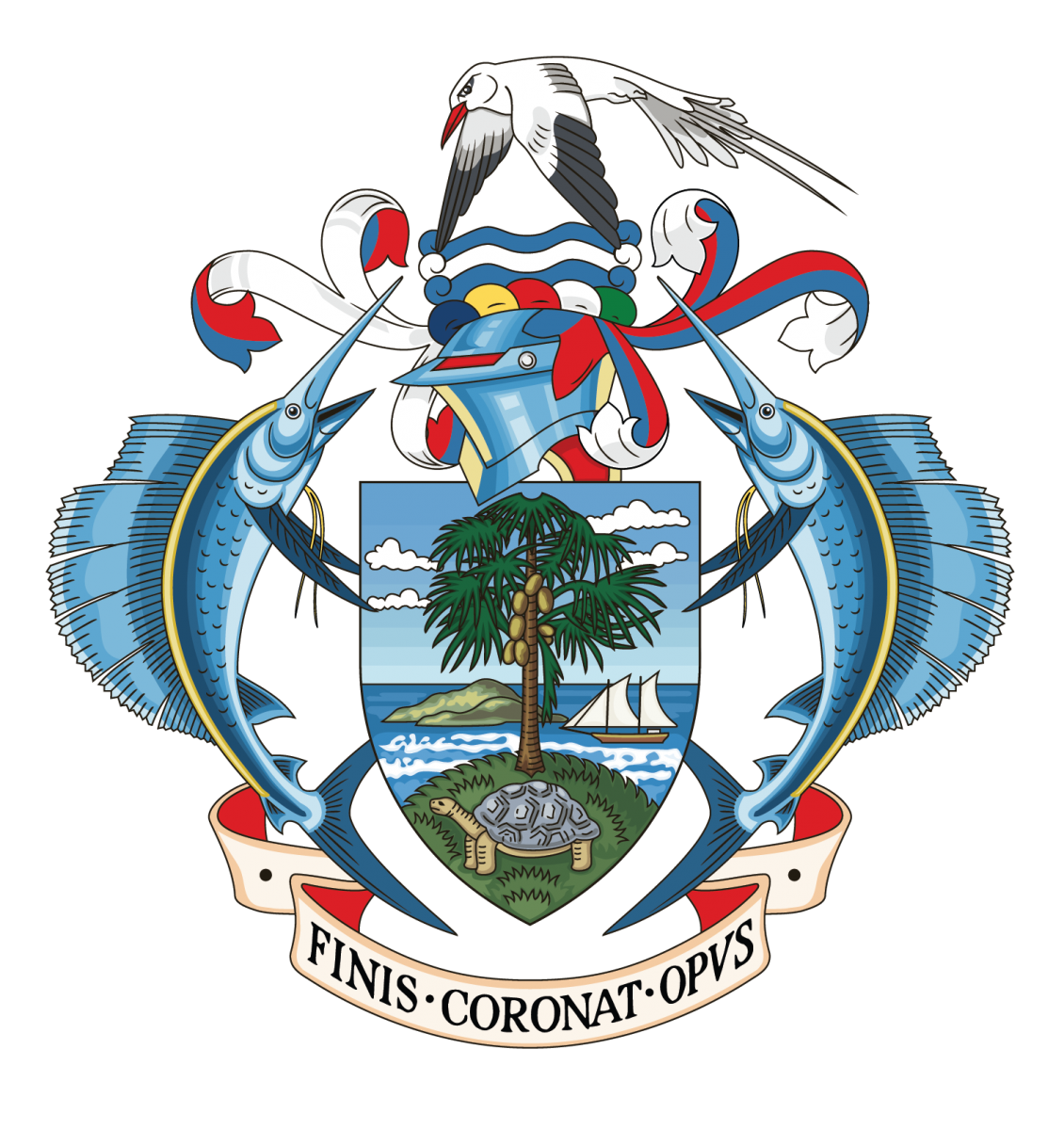Flexible Learning That Enhances Your Potential
Micro-credential certification in Criminal Psychology PSY3174 (BPSY)
Overview:
This subject focuses on a detailed look into the views, thoughts, actions and reactions of crimes and criminal behaviour. It highlights on what may lead to a crime, how a criminal behaviour may be prevente and the effects of crimnes onto the partakers and the society in general from a psychological perspectives.
Awarding Body:
 This programme is designed, delivered, assessed and awarded by SEGi University through the Africa Open Learning Platform.
This programme is designed, delivered, assessed and awarded by SEGi University through the Africa Open Learning Platform.
Endorsement & Recognition:
Discipline:
Psychology
Entry Requirements:
Entry Requirements - No
Age Experience - 23 Years Above
Language Proficiency - Yes
Numeracy Proficiency - No
Pre-requisites - No
Contents:
- Introduction to Criminal Behavior
- Theories of Crime; Theoretical Perspectives on Human Nature
- Disciplinary Perspectives in Criminology; Sociological Criminology; Psychological Criminology
- Defining and Measuring Crime; Uniform Crime Reporting System; Report Studies; Victimization Surveys; Juvenile Delinquency
- Origins of Criminal Behavior: Developmental Risk Factors
- Cumulative Risk Model; Developmental Cascade Model
- Social Environment Risk Factors; Poverty; Peer Rejection and Association with Antisocial Peers; Preschool Experiences; After-School Care; Academic Failure
- Parental and Family Risk Factors; Single-Parent Households; Parental Styles and Practices; Influence of Siblings; Parental Psychopathology
- Psychological Risk Factors; Lack of Attachment; Lack of Empathy; Cognitive and Language Deficiencies Intelligence and Delinquency; ADHD and Criminal Behavior; Conduct Disorder; Oppositional Defiant Disorder
- Origins of Criminal Behavior: Biological Factors
- Genetics and Antisocial Behavior; Behavior Genetics Studies of Twins; the Twins’ Early Development Study; Twin Study of Child and Adolescent Development Adoption Studies
- Molecular Genetics; Psychophysiological Factors Temperament; Environmental Risk Factors; Neurotoxins; Prenatal and Postnatal Malnutrition; Traumatic Brain Injury Brain Development Abnormalities ; Hormones and Neurotransmitters Neuropsychological Factors
- Origins of Criminal Behavior: Learning and Situational Factors
- Behaviorism as a Method of Science; Behaviorism as a Perspective of Human Nature; Skinnerian Concepts; Operant Learning and Crime; Social Expectancy Theory; Imitational Aspects of Social Learning; Differential Association-Reinforcement Theory
- Frustration-Induced Criminality; the Socialized and Individual Offender; Frustration-Induced Riots Frustration and Crime; Situational Instigators and Regulators of Criminal Behavior; Authority as an Instigator of Criminal Behavior
- Deindividuation; the Stanford Prison Experiment; the BBC Prison Study; The Bystander Effect; Moral Disengagement
- Human Aggression and Violence
- Defining Aggression; Hostile and Instrumental Aggression; Interpretation by Victim
- Theoretical Perspectives on Aggression; Psychoanalytical/Psychodynamic Viewpoint; Ethological Viewpoints; Frustration-Aggression Hypothesis
- Weapons Effect; Excitation Transfer Theory; Displaced Aggression Theory; Social Learning Factors in Aggression and Violence
- Modeling; Observation Modeling; Cognitive Models of Aggression; Cognitive Scripts Model; Hostile Attribution Model; The General Aggression Model; I³ Theory
- Overt and Covert Acts of Aggression; Reactive and Proactive Forms of Aggression
- Gender Differences in Aggression; Effects of Media Violence; Copycat Crime or Contagion Effect "
- Juvenile Delinquency
- Definitions of Delinquency; Legal Definition; Social Definition Psychological Definitions
- Nature and Extent of Juvenile Offending Status Offenses; the Serious Delinquent
- Gender Differences in Juvenile Offending Developmental Theories of Delinquency; Moffitt’s Developmental Theory; Steinberg’s Dual Systems Model; Coercion Developmental Theory; Callous-Unemotional Trait Theory Prevention, Intervention, and Treatment of Juvenile Offending
- Treatment and Rehabilitation Strategies Characteristics of Successful Programs
- Classification of Prevention and Treatment Programs Primary Prevention
- Selective or Secondary Prevention
- Psychopathy
- Antisocial Personality Disorder; Examples of Primary Psychopaths;
- Psychological Testing Differences; Psychopaths and Mental Disorders; Psychopaths and Suicide;
- Psychological Measures of Psychopathy
- The PCL-R; Criticisms of the PCL-R
- Core Factors of Psychopathy; the Two-Factor Position; the Three-Factor Position; the Four-Factor Model; The Boldness Factor; the Meanness Factor; the Female Psychopath
- Racial/Ethnic Differences
- Juvenile Psychopathy; Can Juvenile Psychopathy Be Identified?
- Measures of Juvenile Psychopathy Neurobiological Factors and Psychopathy; Genetic Factors
- The Dual-Process Model of Psychopathy;
- Treatment of Criminal Psychopaths; Treatment of Children and Adolescents with Psychopathic
- Case study: Clifford Robert Olson; Adremy Dennis; Joanna Dennehy
- Crime and Mental Disorders
- Defining Mental Illness; the DSM
- Schizophrenia Spectrum and Other Psychotic Disorders; Bipolar Disorder Major Depressive Disorder; Antisocial Personality Disorder
- Competency and Criminal Responsibility; Incompetency to Stand Trial; Criminal Responsibility; Insanity Standards; Guilty but Mentally Ill; Unique Defenses and Conditions
- Posttraumatic Stress Disorder; Dissociative Identity Disorder; Dissociative Amnesia
- Mental Disorder and Violence; Research on the Violence of the Mentally Disordered; the MacArthur Research Network; Police and the Mentally Disordered; Mentally Disordered Inmates; Dangerousness and the Assessment of Risk;
- Case study: Tarasoff Case; Rene Poole; Margaret Mary Ray; Vincent Li
- Multiple Murder, School and Workplace Violence
- Investigative Psychology; Forms of Profiling; Psychological Profiling; Suspect-Based Profiling Geographical Profiling; Crime Scene Profiling;
- Equivocal Death Analysis Multiple Murders; Serial Murders; Choice of Victims and Modus Operandi
- Geographical Location of Serial Killing Ethnic and Racial Characteristics; Risk Factors and Psychological Motives
- Research on Backgrounds; Female Serial Killers; Juvenile Serial Killers; Mass Murderers; Public Mass Shootings; A Mass Murder Typology; School Violence; School Shootings; Psychological Characteristics of School Shooters
- Workplace Violence; Categories of Workplace Violence; Perpetrators of Workplace Violence
- Psychology of Modern Terrorism
- Definitions and Examples; Classification of Terrorist Groups; A Terrorist Typology
- Followers and Leaders: Who Joins and Who Leads; Why Do They Join?
- Quest for Significance Theory; Terror Management Theory; Suicidal Terrorism
- Becoming a Terrorist: The Process of Radicalization
- Terrorist Leaders; Lone Wolf Terrorists
- Boston Marathon Bombers; Fort Hood Shooter; the Times Square Bombing Attempt
- The Psychosocial Context of Terrorism; Terrorist Motives and Justifications
- Additional Disengagement Practices; Psychological Effects and Nature of Terrorism; Cognitive Restructuring; Moral Development
- Violent Economic Crime, Cybercrime, and Crimes of Intimidation
- Robbery; Bank Robbery; Amateurs and Professionals; Commercial Robbery; Street Robbery; Motives and Cultural Influences Robbery by Groups
- Cybercrime; Privacy Concerns and Cybercrime Laws; Psychological Characteristics of Cybercriminals; Stalking; Categories of Stalking; Cyberstalking; Cyberbullying
- Hostage-Taking Offenses; Instrumental and Expressive Hostage Taking; FBI Categories of Hostage Taking; Strategies for Dealing with Hostage Takers; The Stockholm Syndrome; Rules for Hostages to Follow
- Arson; Incidence and Prevalence; Fire setting; Female Arsonists
- Psychological Disorders
- Case study: Ray Rice
Assessments:
Coursework - 60%
Exam - 40%
Credit Transfer:
Upon successful completion of this Micro-credential certification in Criminal Psychology (BPSY), students will be able to transfer grades and credits into the following programme(s):
- Bachelor of Psychology

